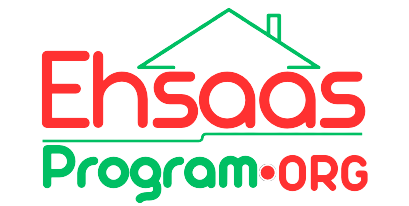Introduction
In the quest to alleviate poverty and empower vulnerable segments of society, the Benazir Income Support Programme (BISP) in Pakistan has emerged as a crucial social safety net. This comprehensive guide aims to shed light on the eligibility criteria for the BISP program, empowering individuals and families with the knowledge to determine their qualification for this impactful initiative.
Understanding the Benazir Income Support Programme (BISP)
The BISP program, named after the former Prime Minister Benazir Bhutto, is designed to provide financial assistance to families living below the poverty line. As a beacon of hope for countless households, BISP focuses on empowering women, supporting families in need, and fostering economic stability.
Eligibility Criteria: Key Factors
Income Level as a Determining Factor
The cornerstone of BISP eligibility lies in the income level of the household. Families with limited financial resources and income falling below a specified threshold are often prioritized for assistance.
Family Composition Matters
The composition of a family plays a pivotal role in eligibility assessment. Larger households with more dependents may be given preference, recognizing the increased financial responsibility such families bear.
Women's Empowerment and Decision-Making
BISP places a strong emphasis on women's empowerment. Families where women actively participate in decision-making processes may receive special consideration, aligning with the program's commitment to gender inclusivity.
Geographical Considerations for Vulnerable Regions
In an effort to address regional disparities, BISP may prioritize families residing in economically disadvantaged or vulnerable regions. This ensures that the program reaches those who need it most.
NADRA Registration Requirement
To be considered for BISP assistance, families must be registered with the National Database and Registration Authority (NADRA). This step is crucial in validating the identity and demographic details of applicants.
Checking Eligibility: Practical Steps
Visit the Official BISP Website
The BISP official website serves as a valuable resource for individuals seeking information on eligibility criteria. It provides detailed insights into the program's goals, eligibility requirements, and the application process.
Contact the BISP Helpline
BISP typically operates a helpline or contact center where individuals can inquire about eligibility and the application process. Trained personnel are available to provide assistance and answer queries related to the program.
In-Person Assistance at BISP Offices
For those preferring face-to-face interaction, BISP has offices located in various regions. Visiting the nearest BISP office allows individuals to receive personalized guidance and support in navigating the eligibility process.
The Evolution of BISP: A Catalyst for Positive Change
Over the years, BISP has evolved to become a catalyst for positive change in Pakistan's social and economic landscape. The program not only provides financial assistance but also focuses on skill development, women's empowerment, and community engagement.
Challenges and Opportunities
While BISP has made significant strides, challenges such as ensuring equitable access, addressing regional disparities, and staying abreast of evolving socio-economic dynamics persist. Ongoing efforts are essential to refine the program, making it more responsive to the ever-changing needs of vulnerable populations.
Conclusion
In conclusion, the Benazir Income Support Programme stands as a testament to Pakistan's commitment to uplifting its most vulnerable citizens. By understanding the eligibility criteria and taking proactive steps to check eligibility, individuals and families can harness the potential of BISP to create a brighter and more secure future. As the program continues to evolve, its impact on poverty alleviation and empowerment will undoubtedly leave a lasting legacy in the fabric of Pakistan's social welfare initiatives.

